
The Cuban Exodus
So long as Cubans’ rage and despair remain, the government cannot afford to curtail emigration. And there is no end in sight.


So long as Cubans’ rage and despair remain, the government cannot afford to curtail emigration. And there is no end in sight.

An interview with Senator Bernie Sanders’ foreign policy advisor Matt Duss.
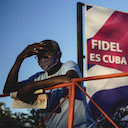
The July 11 protests fused economic and political grievances. A struggle is taking place in Cuba over what happens next.
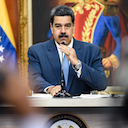
Five social scientists on what the U.S. election might mean for the future of Venezuela.
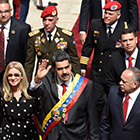
Venezuela is undergoing a rentier-capitalist implosion, made worse by imperial intervention, violent domestic right-wing opposition, and the fusion of the interests of the state and capitalists within the Maduro regime.
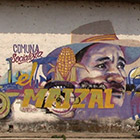
Venezuela’s communal network was supposed to deliver economic and political autonomy. But international commodity markets and the power of the state have undermined these goals.
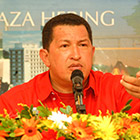
Because anti-imperialist discourse in Latin America serves short-term political purposes, the latter-day defenders of Chavismo have little interest in studying the political dynamics and concrete geostrategic interests behind really existing empire.
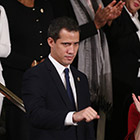
The reconstruction of the left can only begin with a forthright accounting of where governments that claim to be a part of the left have failed.
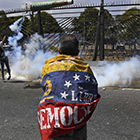
Socialists need to fight against the dangerous and destabilizing actions of the Venezuelan opposition and the United States, while supporting the vast majority of the Venezuelan people in their struggle to regain democracy.


In 1998, many North American and European intellectuals hailed the emergence of a new Latin American left when Hugo Chávez ascended to the presidency of Venezuela. When Evo Morales became president of Bolivia in 2006, and Rafael Correa won the …

In her new book, Our Sister Republics, Caitlin Fitz exhumes a forgotten moment in the history of the Americas, a time when residents of the newly formed United States came to see Latin Americans as partners in a shared revolutionary experiment.

As Latin America’s “pink tide” appears to ebb, Patrick Iber, Javier Buenrostro, Sujatha Fernandes, Bryan McCann, and Thea Riofrancos examine its lessons for democratic socialists in the region and abroad.

Populism is extremely limited if it is not coupled with highly organized grassroots movements with the ability to shape politics from the ground up.
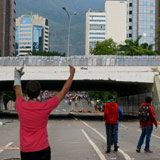
Targeted use of revenue from commodities can be an immediate and necessary salve against brutal levels of poverty and inequality, but Chavismo’s “extractivist” model has left Venezuela as vulnerable as ever to the whims of the international market.
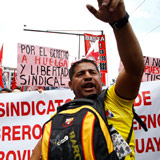
The central protagonists of Latin America’s profound shift away from the neoliberal policies of the 1980s and ‘90s were not strong leaders but social movements.